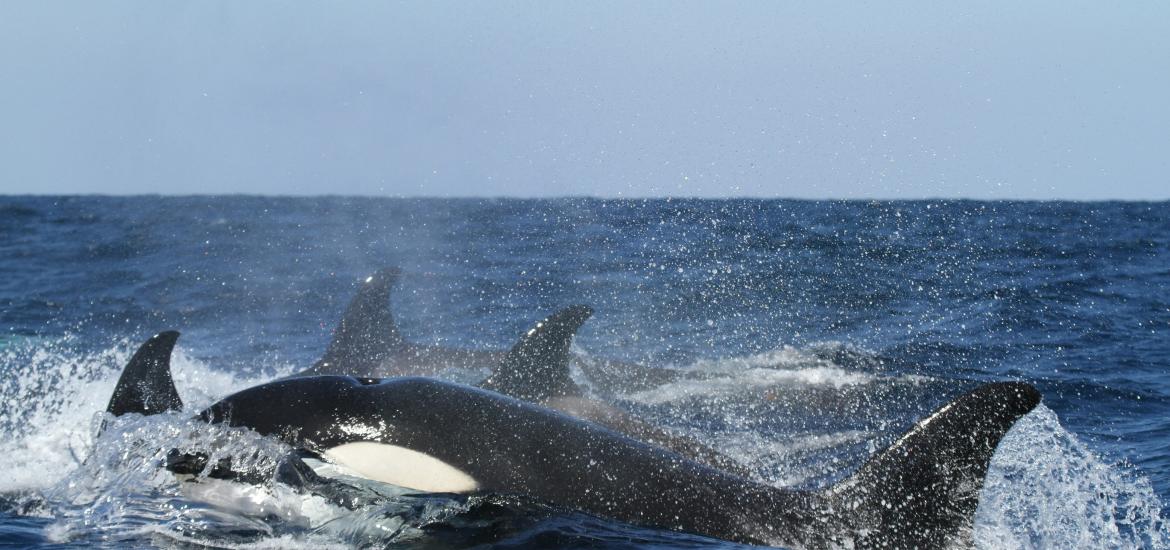
Orca heads to the FDA
Orca-T is said to hit in a pivotal trial, but the comparator regimen could be debated.
Orca-T is said to hit in a pivotal trial, but the comparator regimen could be debated.

Orca Bio claims to have shown sufficient pivotal data for its lead project, Orca-T, to progress it to a US filing. Until now the company, a biotech that's raised around $300m from private investors since 2016, has only been able to make claims of superiority in comparisons against historical data.
However, whether the FDA agrees about the comparator Orca used in the phase 3 trial, Precision-T, is an open question. Orca-T is an engineered cell preparation derived from partially matched donors, intended to improve patients' tolerance to allogeneic stem cell transplantation, and the results are to be presented at the European Society for Blood and Marrow Transplantation meeting.
The company says Orca-T met the primary endpoint of Precision-T. Here Orca-T plus tacrolimus showed a statistically significant increase in time to moderate-to-severe chronic graft versus host disease, versus standard allogeneic stem cell transplant, in 187 patients with AML, ALL, high-risk MDS or mixed-phenotype acute leukaemia.
Methotrexate prophylaxis
The potential issue with the control cohort is that these patients received GvHD prophylaxis with tacrolimus plus methotrexate – and not post-transplant cyclophosphamide, the so-called Baltimore regimen that's recently emerged as the standard of care for partially matched transplants.
Asked about this, Orca told ApexOnco that at the time it designed Precision-T "in close alignment with the FDA, tacrolimus/methotrexate was widely considered the standard of care", and it was decided that this was the optimal prophylaxis to use as comparator. "It's also worth noting that tacrolimus/methotrexate has been shown to result in similar outcomes to post-transplant cyclophosphamide," it added.
Indeed, at last year's ASH conference the company presented results from an uncontrolled phase 1 study of Orca-T in a broadly similar patient population, showing an 86% rate of overall survival at a three-year landmark. This, it said, compared favourably against 67% in a historical cohort of patients receiving an allogeneic transplant followed by GvHD prophylaxis with cyclophosphamide.
The Baltimore regimen represents a recent shift that has allowed an increase in the use of transplants from partially matched donors. Clearly Orca believes that there's still a need to reduce chronic GvHD, but it still hasn't shown prospectively that Orca-T is better than cyclophosphamide.
The company has some notably poor precedents to overcome. In recent years three companies, Molmed, Kiadis and Bellicum, have attempted to develop adjuncts to stem cell transplantation to reduce GvHD, but all foundered because the Baltimore regimen was found to do a pretty good job of cutting GvHD, without cell modification.
Defined cell mix
Orca-T is a cell donor graft that has been partially engineered by depleting all the T cells and then enriching with a defined mix of conventional T cells, Tregs and CD34+ stem cells derived from related or unrelated matched donors.
By comparison, a standard allogeneic transplant comprises an uncontrolled mix of over 50 cell types. Like current transplants, Orca-T requires myeloablative conditioning to help the cell to engraft, but after transplantation only single-agent tacrolimus, an immunosuppressive drug, is given.
Orca closed a $192m series D financing round in 2020. Its backers must hope that, in contrast to Molmed, Kiadis and Bellicum, the company has done enough to persuade the FDA that Orca-T is indeed better than a truly current standard of care.
Stem cell transplant add-ons
| Company | Approach | Status | Outcome |
|---|---|---|---|
| Molmed | Zalmoxis, a donor T-cell cell preparation featuring a ganciclovir/valganciclovir-triggered "suicide switch" | Conditional EU approval withdrawn after failure of a confirmatory trial | Molmed was acquired in 2020 by the contract manufacturer AGC Biologics for its production capability |
| Kiadis | ATIR101, a preparation in which GvHD-causing cells were removed using photodepletion | Conditional EU filing rejected because of the absence of confirmatory data | Kiadis was acquired in 2020 by Sanofi for its NK cell technology |
| Bellicum | Rivogenlecleucel, a donor cell preparation in which alpha/beta T cells were removed, featuring a rimiducid-triggered "suicide switch" | EU filing plan abandoned after phase 3 Thrive study, comparing against the Baltimore regime, was terminated | Bellicum was wound up in 2024 after selling its switch technologies to MD Anderson |
| Orca Bio | Orca-T, a donor cell preparation engineered to comprise a defined mix of Tregs, T cells and stem cells | Phase 3 study toplined positive against standard allogeneic stem cell transplantation with tacrolimus/methotrexate GvHD prophylaxis | Data to be discussed with FDA and progressed towards filing |
Source: OncologyPipeline & company filings.
1400













